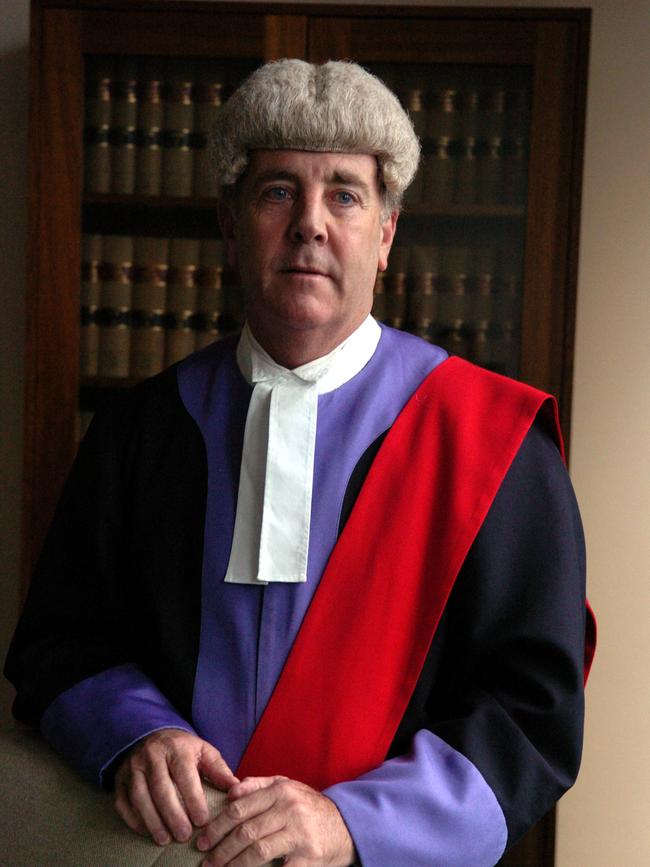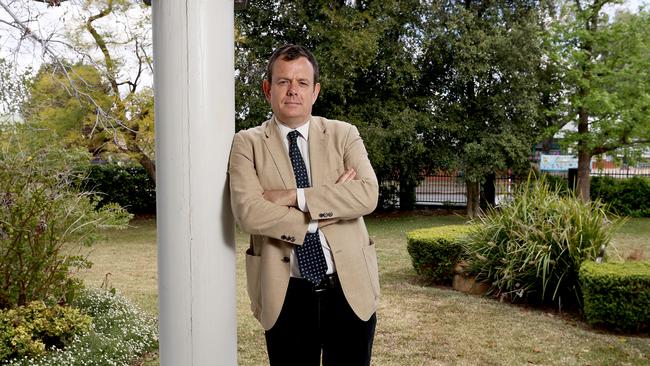Public prosecutors pushing ‘doomed to fail’ rape cases, say District Court judges
Judges have warned prosecutors are trialling sexual assault cases without required scrutiny due to fear of criticism, and instead choose the ‘easy’ option of letting a jury decide.

Judges have warned that public prosecutors are putting sexual assault cases before courts without the required scrutiny, due to their fear of being criticised for dismissing a victim’s claim, and instead are choosing the “easy” option of letting a jury decide.
In extraordinary comments that raise questions as to the impact of social and political campaigns on independent state prosecutors’ determination of public interest in bringing rape cases to trial, two recent NSW District Court judgments have highlighted a trend of “unmeritorious” cases being brought before courts, risking miscarriages of justice.
The cases have highlighted what the judges - Penelope Wass and Gordon Lerve - say are stark examples of the abrogation of the prosecutor’s responsibilities amid courts increasingly hearing a proportion of rape cases that are “doomed to fail”, with one judge slamming prosecutors for putting “incredible and dishonest allegations of sexual assault through the criminal justice system”.
Now, NSW District Court acting judge Paul Conlon has added his voice to concerns, telling The Weekend Australian judges have “unfortunately in recent times seen many examples of cases being pursued with no reasonable prospect of conviction with the inevitable result of an acquittal.”
Judge Conlon also slammed the handling of former Liberal staffer Brittany Higgins’s rape allegations against Bruce Lehrmann, saying the case was “doomed” because the claims had been made public before it reached court, and he attacked Anthony Albanese’s and Scott Morrison’s “incredible naivety” in apologising to her in parliament.
Speaking to The Weekend Australian, Judge Conlon said the pursuit of cases without the prospect of conviction was ultimately damaging for genuine victims, who may be put through the trauma of an ill-fated trial.
“There is a prosecution guideline, which is still a guideline as I understand it, in every DPP around the country, that if on a professional assessment a view is reached that there was no reasonable prospect of a conviction, then such a matter should not be brought to court,” said Judge Conlon, who was a Crown prosecutor for 20 years before being appointed to the bench in 2006, where he became well-known for his tough sentencing of rapists and extensive work in reforming the justice system to support child sex assault victims. He retired in 2018 as a judge but still serves as an acting judge, and is also the chair of the NSW Rugby League.
“Prosecutors have a duty to the community not to bring persons to trial on suspect evidence,” Judge Conlon said.
“Unfortunately in recent times, judges like myself have seen many examples of cases being pursued with no reasonable prospect of conviction with the inevitable result of an acquittal.
“Accordingly it would seem to me that the initial critical assessment process in respect of the available evidence is simply not undertaken.

“It’s easier for prosecuting authorities to send the matter to court and let the jury decide. They then don’t have to confront the difficult task of telling a complainant that the matter will not proceed and explaining why that decision has been reached. There is a belief they will also escape criticism by allowing the matter to go to court.”
The comments are in line with grave concerns documented by fellow NSW District Court colleagues Judge Wass and Judge Lerve in two matters in the past six months in costs determinations. Judge Wass said in the matter of R v DS, in which an accused was acquitted by a jury after 25 minutes, that “such was the state of the evidence that I formed the view during the trial that had the jury returned a verdict of guilty on any count, I would have presided over a clear miscarriage of justice”.
While Judge Wass did not criticise the individual prosecutor in the case, who had acted “impeccably and with fairness”, she warned that police had formed an “imperfect and entrenched point of view regarding the allegations” and suggested the trial should never have been run at all.
“The officers of the Director of Public Prosecutions who prosecute on behalf of the Crown enjoy the power to prosecute in the public interest,” Judge Wass said.
“They also carry the duty in wielding that power – given the lives that it disrupts and the damage it can cause – to do so with the appropriate circumspection and responsibility.
“A prosecutor is required to do more than shepherd incredible and dishonest allegations of sexual assault through the criminal justice system, leaving it to the jury to carry the burden of decision making that ought to have been made by the prosecutor.
“The bringing and continuation of unmeritorious cases in abrogation of the prosecutor’s responsibilities … in failing to make an evaluation and act accordingly imposes a burden not only on the criminal justice system, but on all of those involved in it, including complainants and, not the least of whom, any person against whom that prosecution either commences or continues.”
In February, Judge Lerve, who is also a former prosecutor, said he had presided over a number of sexual assault trials during the Covid-19 pandemic which he believed were “doomed to failure from the outset”.
The concern expressed by judges follows the furore over the Lehrmann case in which ACT DPP Shane Drumgold came under heavy scrutiny amid conflicts with the police over the decision to take the case to trial.
Judge Conlon slung criticism at the mishandling of the Lehrmann matter, saying the case was destined to fail as soon as it was aired in the public domain.
He condemned Mr Morrison and the Prime Minister for apologising for a crime which had not been proven, saying the option to stop proceedings before it went to trial due to the huge publicity of the matter was valid.
“In the Lehrmann/Higgins case, that was doomed to failure as soon as it was thought appropriate to ventilate the issues in the public domain and attempt to influence public opinion,” he said.
“The role played by some sections of the media in that process was breathtaking in its stupidity. As was the incredible naivety of the two leaders of our country (Mr Morrison and Mr Albanese) in issuing apologies on the floor of parliament before one word was spoken in evidence. The fundamental and important principle of an accused person’s presumption of innocence was simply ignored and cast aside.
“That, of course, brought about the inevitable application to the court to permanently stay the prosecution on the basis that those background circumstances were such as to prevent the accused from ever receiving a fair trial. Whilst that application was ultimately unsuccessful, in my view it had considerable merit.”
Judge Conlon’s comments coincided with an in-depth inquiry into whether Mr Drumgold breached his duties when handling Mr Lehrmann’s rape trial, governed by former Queensland solicitor-general Walter Sofronoff. Mr Sofronoff has retired to make his decision, and his findings are due on July 31.
Judge Conlon praised the conduct of the Australian Federal Police, who had expressed reservations to Mr Drumgold about the strength of the case against Mr Lehrmann.
“At numerous detective training courses over the years, I have emphasised the importance of not only uncovering evidence pointing to the guilt of an accused in the investigation process, but also the importance of uncovering evidence which might exculpate a suspect,” he said.
“Recently, I was staggered by criticism of police for attempting to scrutinise a version provided by a complainant. In an appropriate case, that is exactly what they should be doing.”
NSW Labor Upper House MP Stephen Lawrence, a barrister, last month told parliament the legal industry has “intensified concerns” regarding the conduct of prosecutors who have been swept up in the #MeToo movement and prosecuted sexual assault cases with little evidence.
He said courts had raised “serious questions as to whether police and prosecutors are striking the right balance” between honouring the alleged victim and adhering to the boundaries of justice.
“The making of those administrative decisions is complex, as are the surrounding policy questions at play, including the often stated fact that charge and conviction rates are low in the context of allegations of sexual assault,” he said. “The #MeToo movement has intensified concern and consideration of those matters in the community.”

Mr Lawrence said lawyers had been taking an “avid interest” in the Sofronoff inquiry, which would hold “national significance, and may herald a need to systemically examine many of the same issues in our state”.
Full Stop Australia acting CEO Tara Hunter said while the issue may appear problematic, it was “a Catch 22, because we want responsive systems where people feel heard and believed, and have the opportunity to go through the legal process”.
“We know at least 80 per cent of victims don’t … come forward to the police, and what we see in terms of successful prosecution is less than 2 per cent,” she said.
“That’s why it is so important to give people really clear information about their legal rights, and around understanding what the process looks like so they can make the right choices.”


